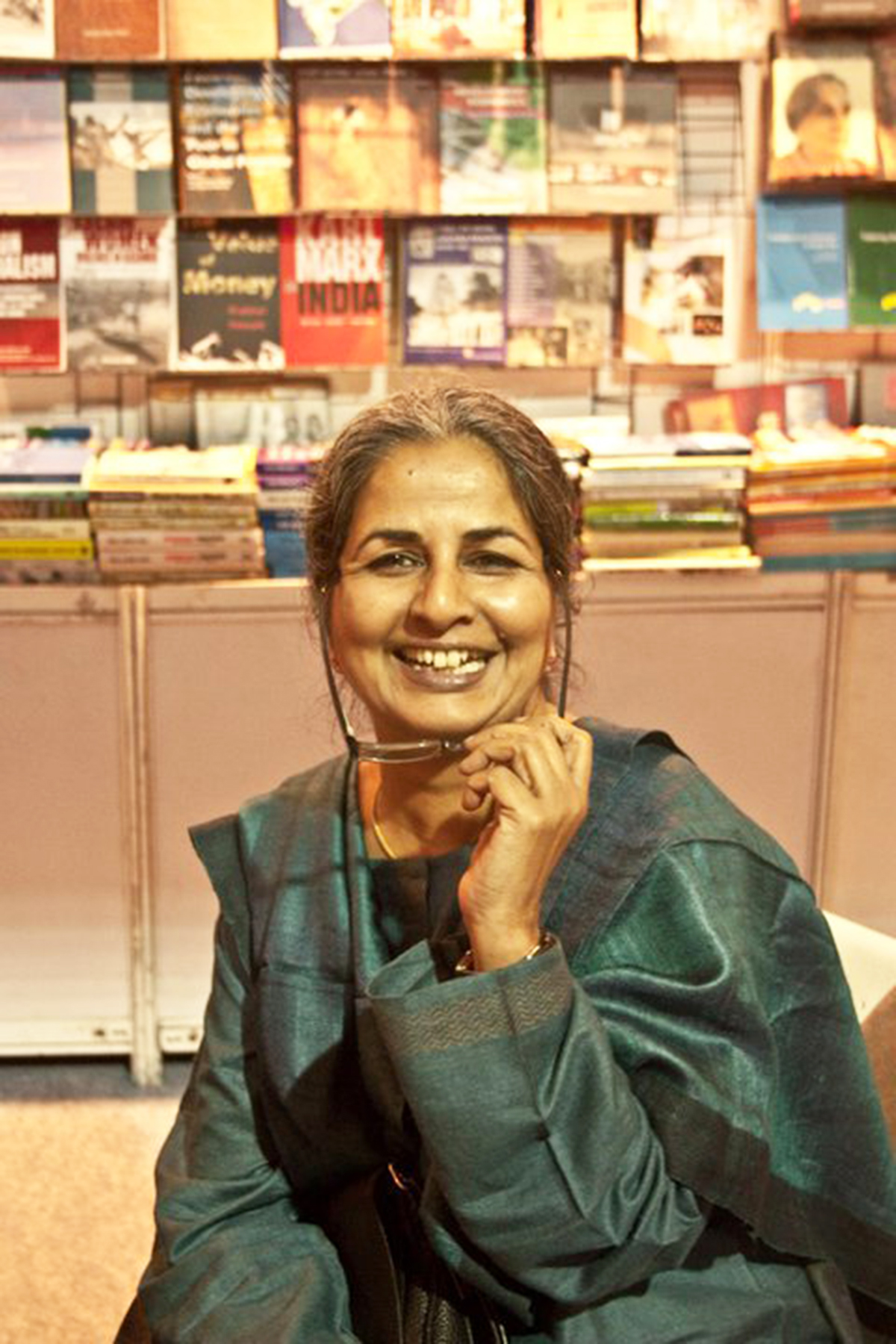
Indira (Indu) Chandrasekhar, Publisher and Managing Editor of Tulika Books, New Delhi. Photo: Tulika Books
Much like 2020, most of 2021 was for us at Tulika Books, as I am sure it was for many in the world of publishing in India, a period of trying to catch up and arrive at some measure of “normalcy”. This, amidst the confusion of pandemic-induced disruptions and shutdowns to begin with, soon to be overtaken by the onslaught and anxieties of the “second wave” and a continuing sense of deep uncertainty as to what the future holds. It was a period when our very sense of time underwent a radical change, with frequent turnbacks and stoppages in the way of carrying on with the regularity of work-life adding to the feeling of another “drop year” as it were.
The struggle for survival that we independents are otherwise familiar with, and have grown accustomed to, took on different and more threatening dimensions as we were faced with altogether new challenges — bookshops shutting down or going out of business, the prolonged closure of educational institutions, libraries and other book procurement outlets, restrictions on travel and postal/courier services, etc. — forcing us to improvise, re-think, re-cast conventional modes of work. Deferring publication dates, cutting down on the number of new titles, a greater reliance on reprints that are the backbone of our active backlist, shorter print-runs all-round — these were some of the strategies that we put in place at Tulika, instinctively almost and without much planning. And necessarily, too, given the new mantra of working from home in relative isolation and the lack of interaction with colleagues and others at the workplace that we had so taken for granted, and which can by no means be compensated by any number of “meetings” via WhatsApp audio/video calls or Google Meet/Zoom sessions. We published seven new titles and six reprints in the year 2021 — a larger number than in the previous year when the floundering was much greater, but still far short of our usual count of 10–12 new titles and 6–8 reprints. Apart from having to defer several new releases, the average print run of the titles we did publish, too, was either shortened or staggered, in an attempt to stave overstocking of warehouse racks due to the reduced offtake. Further, the bi-annual shipments to our overseas distributor had to be cut down to just one last year (as in 2020), keeping in mind the reduced numbers and increase in costs apart from delays in freighting.
A previously underexplored though long-overdue strategy we deployed — in an attempt to convert a near-crisis into an opportunity — was to boost our online presence and ramp up online sales by selling directly on our revamped website. Tulika Books completed 25 years in publishing in 2020, which we continue to celebrate on our website and social media platforms through campaigns, special sales and focused events under the tagline, “... more than 25 years of publishing excellence”. Simultaneously, we strengthened our list of books available “on demand” as compared to stocks of offset-printed books, by adding to the online repository maintained, promoted and sold by a well-established print-on-demand service provider. Although these alternative/parallel streams of revenue — via direct sales on our website and sale of on-demand titles by e-tailers on other platforms — as yet account for only a small share of our total sales revenues as compared to that garnered from channels of “physical” distribution, it cannot be denied that the former has registered an increase in absolute terms. This, combined with the fact that online sales involve smaller discounts, next-to-nil credit periods and, most important, the possibility of direct communication with our readers, is encouraging indeed — and perhaps a sign of things to come for publishing in India, where the physical has trumped the virtual till now. It is another matter, of course, that digital penetration remains abysmally low in our country, in terms of access to computers and electronic reading devices (except for mobile phones) for the large majority of readers, except in metros, tier-1 cities, and elite educational and research institutions.
Then there are the publishing lists and series that we have developed and sustained in collaboration with and supported by other institutions that have stood us in good stead in the past, and which shored us up in these difficult times. These include, to name a few, the People’s History of India series, of which the eminent historian Professor Irfan Habib is general editor, co-published with the Aligarh Historians Society; the series on agrarian studies published in association with the Foundation of Agrarian Studies; and a select but growing list in the arts developed with the Sher-Gil Sundaram Arts Foundation under the joint imprint SSAF-Tulika Books. These collaborations and partnerships, as also the generosity of our authors and co-creators, have been a lifeline this last year, lending weight and focus to a publishing list that might otherwise have been too scattered to have any impact.
2022, the year ahead.
And now, situated as we are at the beginning of a new year, it appears as though there is to be no respite, at least in the immediate future. The prospect of newer variants of the virus and lockdowns loom large on the horizon, and the proverbial light at the end of an already long and dark tunnel seems elusive. Carry on, we must — but how, and armed with what new and creative means, remains to be thought through, preoccupied as most of us still are with devising firefighting measures with available resources. Meanwhile, what lies in store for Tulika in the year ahead, at least in the short term — and till, perhaps, new wisdom is acquired by reflecting and drawing upon our own and other colleagues’ collective experiences — is probably to continue with fewer titles, reduced print runs, a stronger online presence, collaborative lists... More of the same in one sense, but also the promise of new solutions and new directions, perhaps, based on a more informed understanding of a new reality.
This piece was part of our yearend publishing issue
More from The Byword
Comments
*Comments will be moderated











